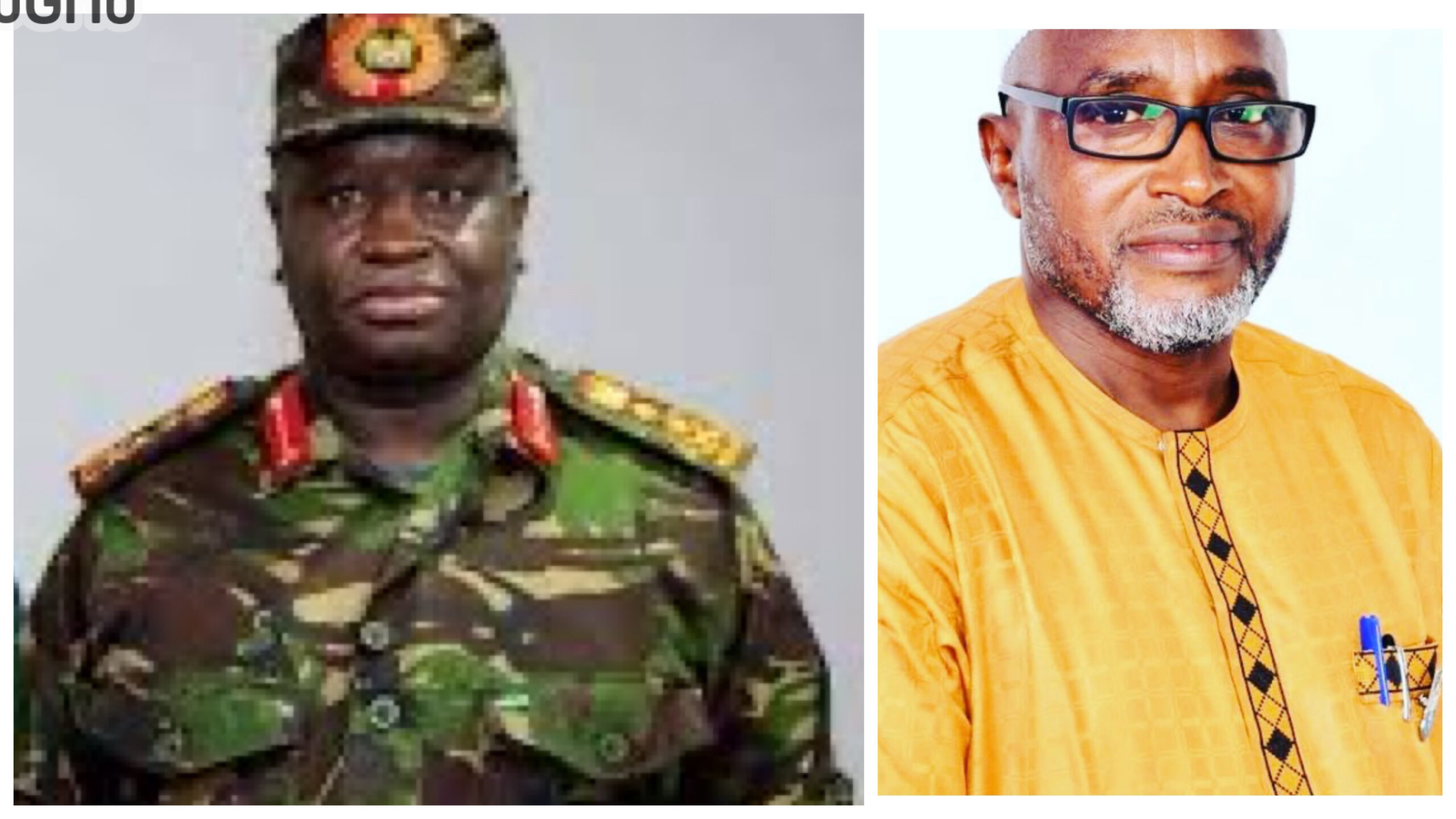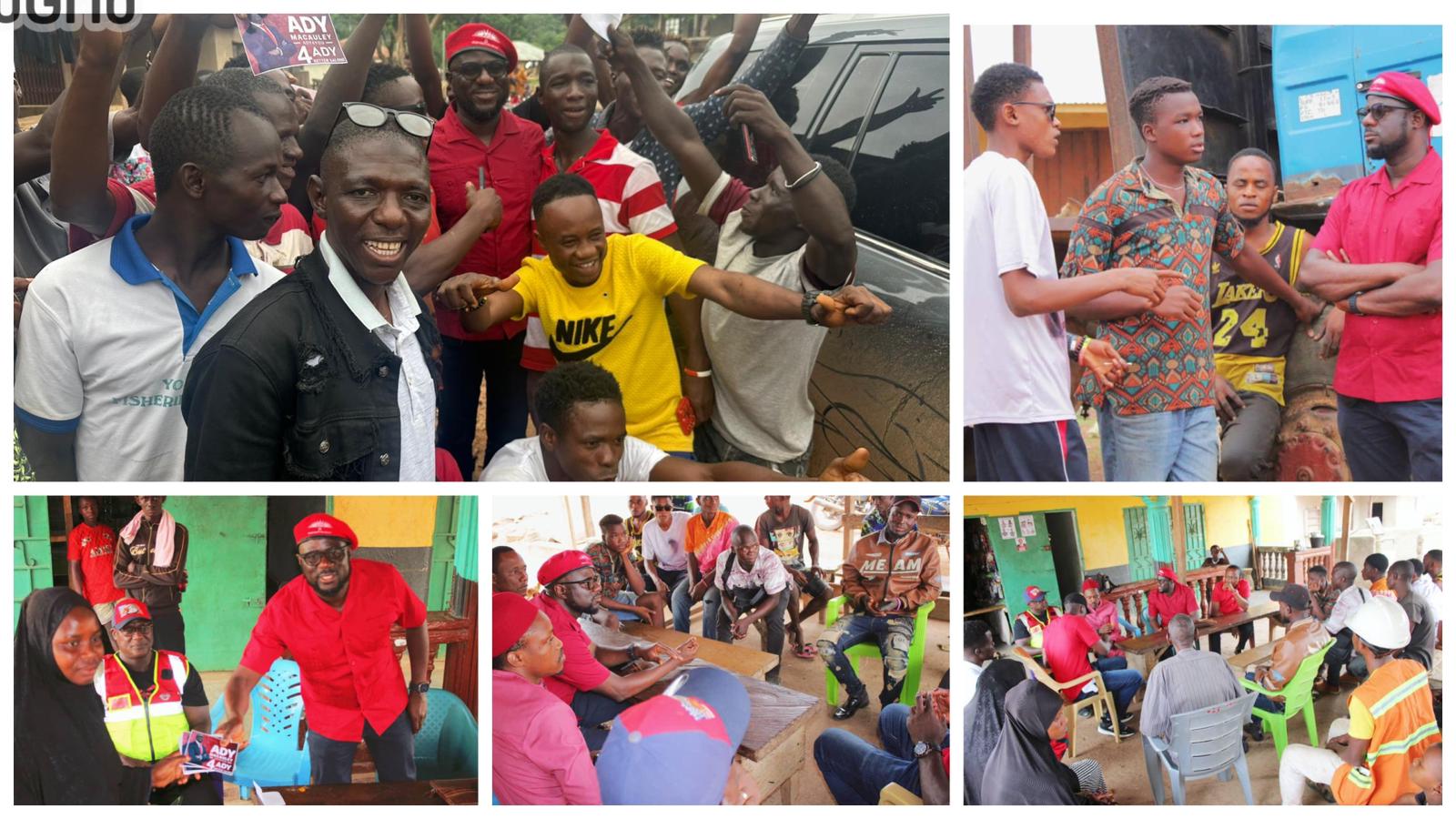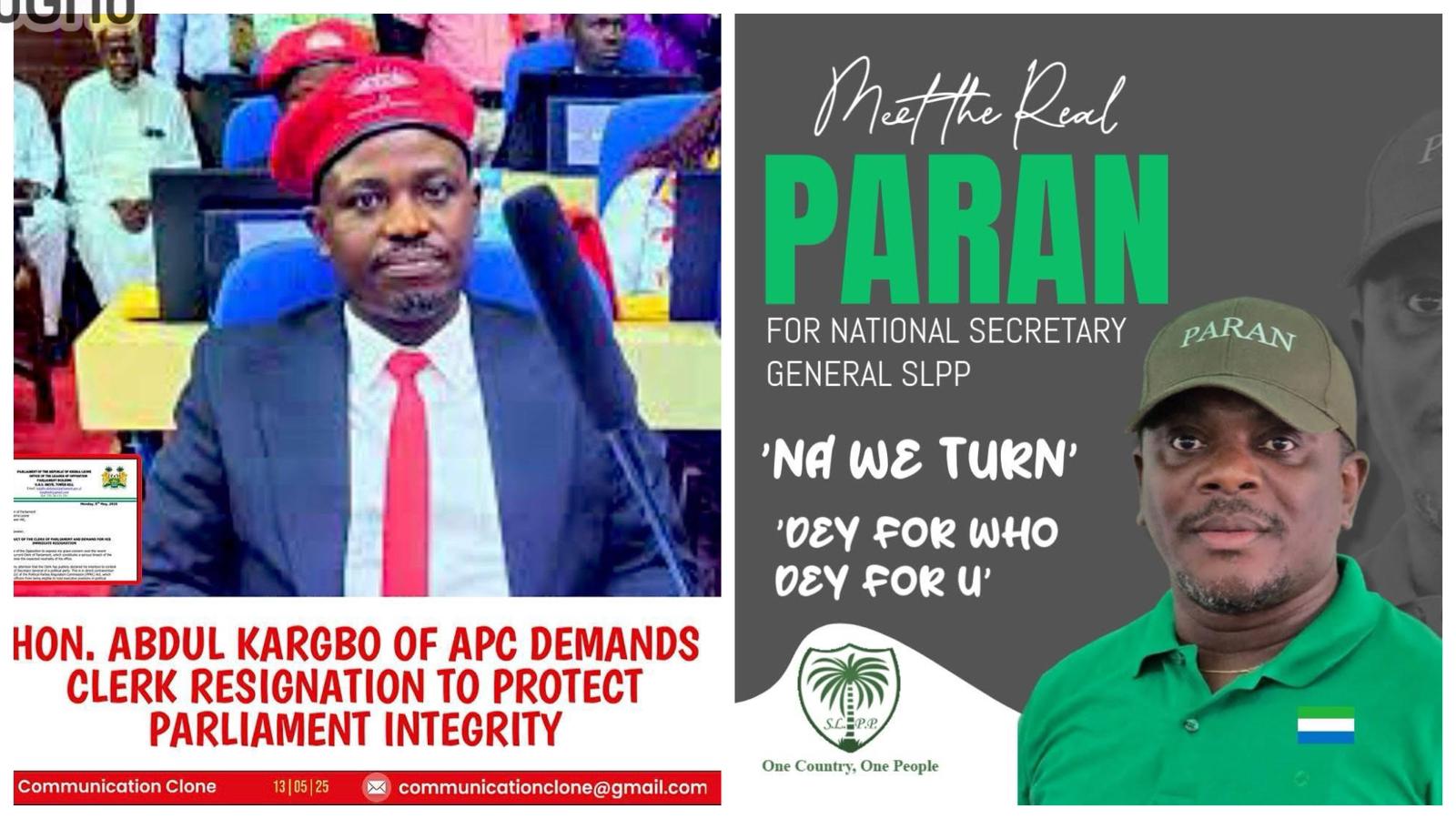
By Chernor Mohamadu Jalloh Lecturer of Governance, Leadership & Development Studies IPAM- University of Sierra Leone
“The hottest places in hell are reserved for those who, in times of great moral crisis, maintain their neutrality.” — Dante Alighieri
I write this not as a passive observer, but as a committed son of the soil—wounded by our stagnation and stirred by the historic winds now sweeping across our continent. A tempest is rising across West Africa—not of anarchy or chaos, but of renewal, courage, and the reclamation of sovereignty. In Burkina Faso, Mali, Niger, and now Guinea, the chains of neo-colonialism are being cast off. The old order is cracking under the weight of a bold, unapologetic African renaissance—where dignity trumps dependency, and agency takes precedence over aid.
This is more than regime change. It is the birth of a new political consciousness—one that dares to imagine an Africa governed by its own values, its own voice, and its own vision. Yet amid this historic tide, Sierra Leone stands still, trapped in rhetorical reforms and cosmetic governance, while the drumbeat of revolution grows louder just beyond our borders.
As figures like Captain Ibrahim Traoré rise from the ashes of exploitation to become emblems of hope and resistance, the silence from Freetown is unsettling. And so, I must ask—President Julius Maada Bio: Will you be remembered as the leader who rose to the moment and aligned Sierra Leone with the pulse of a continent reborn, or as one who hesitated while history thundered past your door?
A Region Awakened
It is no longer speculative: Ibrahim Traoré has become a revolutionary icon—not just for the Burkinabé people but for millions across Africa. Since assuming leadership in 2022, Traoré has defied foreign diktats, expelled exploitative French forces, and reclaimed national control over Burkina Faso’s mineral wealth. His vision is clear: Burkina Faso must belong to Burkinabés.
Inspired by this vision, Mali and Niger have joined Traoré to form the Alliance of Sahel States—a bold regional bloc that champions authentic economic integration and security cooperation rooted in African values and sovereignty. This tripartite alliance is not rhetorical. It has rejected the relic of colonial finance—the CFA Franc—and announced plans for a new joint currency and central bank. For once, Francophone Africa is speaking with its own voice.
Now, Guinea has entered this wave of sovereignty with unflinching resolve. In a move that stunned the international investor community, President Mamady Doumbouya declared the immediate cancellation of all mining contracts, ordering foreign companies to reapply under a new national framework. His ultimatum: no more raw export of bauxite or gold—these must be processed in Guinea to create jobs and value locally. This is not just policy reform; it is a reclaiming of national dignity. Doumbouya’s approach mirrors Traoré’s revolutionary model: Africa must no longer be the world’s warehouse, but its workshop.
Botswana—long seen as a stable but subdued player—is now pivoting. In a recent public address, President Mokgweetsi Masisi declared Botswana would no longer export diamonds without local beneficiation. With unmistakable admiration for Traoré’s forthright nationalism, Masisi emphasized that “Africa must stop giving away its wealth cheaply.” Though Botswana’s institutions differ, the message is consistent: the time for docility is over.
Sierra Leone’s Moment of Reckoning
Meanwhile, Sierra Leone remains entrenched in the old ways. Despite President Bio’s pledges of a “New Direction” and “radical inclusion,” the lived reality remains disheartening. Foreign consultants write our development plans. Western embassies defend exploitative mining interests. Our gold, diamonds, rutile, and bauxite are extracted and shipped abroad while communities near the mines remain impoverished, unemployed, and polluted.
First Lady Fatima Bio recently broke ranks with the usual diplomatic script. In a passionate address, she denounced the “utter disrespect and economic sabotage” perpetrated by multinational mining companies. “They come with promises, leave with billions, and leave our people worse off,” she lamented. Her remarks reflect a growing national frustration. When even the First Lady publicly denounces foreign exploitation, then the government has no excuse for continued inertia.
The people are exhausted—tired of elections that deliver little, tired of wealth that benefits foreigners more than citizens, tired of leaders who travel the world with begging bowls while our minerals enrich others. Mr. President, the time for patience has expired.
The Path Forward: What Should Bio Do?
It is time to cast off the chains. Nationalize our mines—not as political theatre, but through institutional restructuring that puts ownership and oversight in Sierra Leonean hands. Re-negotiate contracts with ironclad clauses on domestic processing, technology transfer, and job creation. Establish a Sovereign Minerals Authority to manage and audit all resource transactions in the national interest.
More boldly, form a Mano River Sovereignty Bloc with Guinea and Liberia, mirroring the Sahel Alliance’s resource-nationalism framework. Let us build our own intra-regional powerhouses—bound by shared interests, not donor prescriptions. Here are six imperative actions:
1. Nationalize Mining Operations – Not merely in rhetoric, but structurally. Require majority Sierra Leonean ownership, enforce resource beneficiation, and mandate environmental accountability.
2. Launch a Sovereign Minerals Authority – A transparent, independent institution to regulate all mining licenses, revenues, and compliance. Use it to fund health, education, and rural development.
3. Cut IMF/World Bank Dependency – Diversify partnerships toward mutually respectful nations—Turkey, Brazil, Indonesia, even the BRICS+ bloc. Let financing follow sovereignty, not subservience.
4. Reinvest in Agro-Industrial Hubs – Agriculture is our dormant giant. Create processing industries around cocoa, rice, palm oil, and cassava. Turn youth unemployment into rural entrepreneurship.
5. Empower Youth and Traditional Institutions – Let innovation centers, cultural hubs, and grassroots leadership replace bloated bureaucracy. Build leadership from the ground up, not just through elites.
6. De-Colonize Education and Media – Teach our children not only about African giants like Thomas Sankara, Kwame Nkrumah, Patrice Lumumba, and Nelson Mandela, but also about our own national heroes—Bai Bureh, Sengbe Pieh, Ella Koblo Gulama, Madam Yoko, and Edward Wilmot Blyden. Let our TV stations, newspapers, and textbooks reflect African agency, Sierra Leonean resilience, and indigenous knowledge—not imported narratives that erase our contributions to global history and liberation.
Lessons from Traoré, Kagame, and Others
Critics of military-led regimes are quick to cite procedural legitimacy. But what legitimacy do institutions have when they serve the interests of the few and the dictates of the West? What legitimacy is there in elections when economic sovereignty remains foreign-controlled?
Captain Ibrahim Traoré, though young, grasps a truth many senior leaders have ignored: legitimacy is earned, not conferred. He has built civil defense brigades, reopened schools, and aligned Burkina Faso’s resources with public priorities. His government has returned hope to the disillusioned and dignity to the disenfranchised.
Paul Kagame, though controversial in some circles, has demonstrated what uncompromising leadership and a home-grown development agenda can deliver. Rwanda is now globally respected for its technological progress, low corruption levels, and assertive foreign policy. Kagame strictly manages foreign investment, ensuring it aligns with Rwanda’s interests, and demands performance from all state institutions.
Mali and Niger, both under transitional military governments, have rejected decades of dependency. They are investing in local food systems, nationalizing energy resources, and restoring the military as a tool for national defense rather than elite protection. Though sanctioned by ECOWAS, they are gaining regional admiration and public trust.
Now, new voices are rising from Southern and Eastern Africa, echoing this call for sovereignty. In Namibia, the newly elected President has shocked the diplomatic world by taking decisive steps toward reciprocal foreign policy. In a bold move, his administration now demands that all U.S. citizens residing in Namibia must apply for a visa within the country or vacate. Simultaneously, he has insisted on reciprocal visa requirements for Namibian nationals visiting the United States, asserting that sovereignty must be mutual. Even more remarkably, Namibia has moved to phase out the U.S. dollar as a primary currency of exchange, favoring local and regional alternatives to stabilize its economy and decenter dependency on Western financial systems.
President Samia Suluhu Hassan of Tanzania is treading a similar path. Under her leadership, Tanzania has placed growing restrictions on dollar-based transactions, urging the use of the Tanzanian shilling in both public procurement and private-sector contracts. Her government has emphasized economic patriotism and regional integration over Western dependence, increasingly positioning Tanzania as an assertive actor in East Africa’s economic realignment.
What binds these leaders—Traoré, Kagame, Doumbouya, Samia Suluhu, and Namibia’s new president—is not the uniformity of their systems, but the clarity of their convictions. They reject the false binary that Africa must choose between chaos and compliance. They are building a third way: one grounded in dignity, strategic sovereignty, and unapologetic African agency. These are lessons we must internalize. The question is—will our own leaders listen?
A Final Word: Rise or Be Forgotten
President Bio, you were once a soldier. You understand the discipline of timing and the weight of command. This may well be your final defining moment. The youth of Sierra Leone are restless, but hopeful. The continent is awakening. The tide is rising. If Guinea can act, why not us? If Traoré can stand, why not you?This is not a call for insurrection. It is a call for strategic sovereignty—a revolution of values, economics, and vision. A revolution that does not need bullets, only boldness.The future will not be kind to those who waver in moments of historic clarity.
Finally, Mr. President, Will you rise with this tide? Or be remembered as the one who let it pass?



